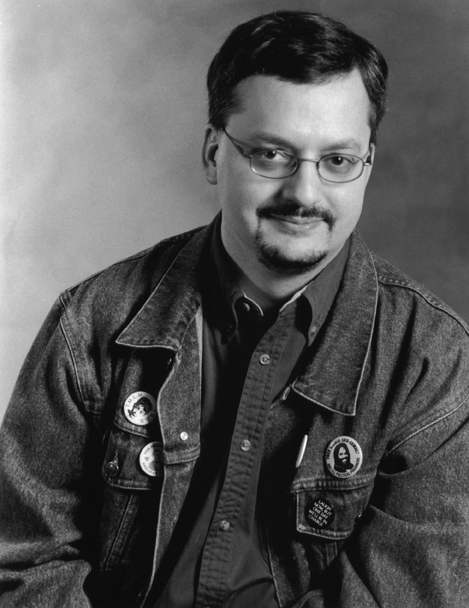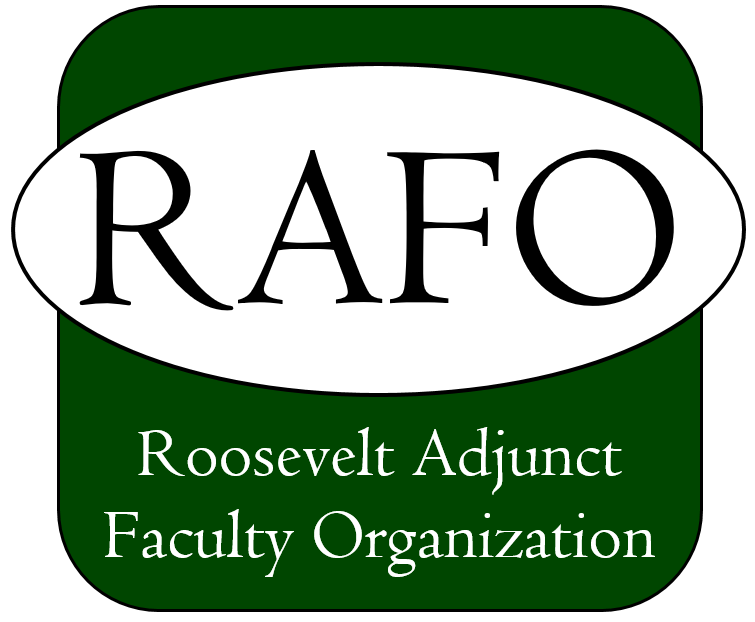From Joseph Fedorko
 One doesn’t plan on becoming an adjunct. One certainly doesn’t create a career around becoming an adjunct. You either do it as a side job, as a stepping stone to something bigger, or as a piece to a larger puzzle of other kinds of work you want to do.
One doesn’t plan on becoming an adjunct. One certainly doesn’t create a career around becoming an adjunct. You either do it as a side job, as a stepping stone to something bigger, or as a piece to a larger puzzle of other kinds of work you want to do.
At least that’s what Joe Fedorko was thinking when, after finishing a Masters’ Degree at Northwestern only to find his doctoral project proposal rejected by a new dean in their theatre program, he accepted a course from the late Priscilla Davidson to try his hand at teaching English composition – something he wasn’t formally trained to do, but something he calculated he could, after 15 years of English classes, be able to figure out. That class was in 1990, and thirty years later, Joe’s still teaching, still adjuncting, still figuring out how to teach English composition, and still at Roosevelt.
If the above sounds kind of sad, it isn’t. Joe approached both the teaching and the adjuncting with a clear head. He never earned a Ph.D. (though he came close to finishing an MFA before writers’ block and becoming an active part of RAFO emerged), but Joe wound up using the teaching as a base to build a freelance writing practice, which in the 1990s was quite busy and lucrative. Working on industrial training videos, grant writing and fundraising, and riding the bubble of the creation of the Internet, Joe could nurture his teaching skills through evening courses (which in those days was the majority of courses at Roosevelt) and make a comfortable living, all while also pursuing his playwriting through his residency at Chicago Dramatists. Teaching was part of the mix, but not central to his career tracks.
That changed in April 2001, when the dot-com bubble burst and the boom of the Internet gave way to the unease of George W. Bush and 9/11. That was when the opportunity to teach not one but two (two?!) classes at RU emerged, as well as getting courses at nearby Columbia College Chicago. The timing was helpful – Columbia had become the first group of adjuncts in Chicago who organized into a union, with Roosevelt soon following. By 2004, Joe had stepped up to become RAFO’s department representative for the Composition program, and his work at Columbia had shifted from English composition to public speaking, which gave him a chance to use his experience as a debate coach in Ohio and his still-active playwriting work to teach what Columbia called “oral expression.”
All the while, Joe ‘climbed’ the leadership ladder within RAFO. The son of a U.S. Steel career man who became a foreman in the shipping and receiving division, Joe was surrounded growing up by uncles in a variety of unions – AFL-CIO, Teamsters/City of Cleveland, UAW, USW, UMW. Joe’s beloved godmother was a union butcher in Cleveland, and his brother’s godfather was one of the lead negotiators in Berea, OH’s Chevrolet plant. Never did he think that he would fall into the proud tradition of his uncles by being a proud card-carrying member of a union. As proud and card-carrying as he is, he realizes the obligation to pay back for folks whose paths may have made them stumble into adjuncting. The paths are different, but the need to help folks while on that path is important.
 Now, thirty years later, Joe’s still at RU. He’s still working. He’s still writing plays, having formed his own theater, turned podcasting, company (DB Comedy) in 2006; still at Columbia; still freelancing (Joe now does private speech coaching and writing!); and he is still trying to figure out what he’ll do with his life once this adjuncting thing is done.
Now, thirty years later, Joe’s still at RU. He’s still working. He’s still writing plays, having formed his own theater, turned podcasting, company (DB Comedy) in 2006; still at Columbia; still freelancing (Joe now does private speech coaching and writing!); and he is still trying to figure out what he’ll do with his life once this adjuncting thing is done.
Thirty years just happens. Sometimes adjuncting does, too. And if Joe is any indication, while you may not get rich adjuncting, you can still use it to help figure out what you’ll do next.

